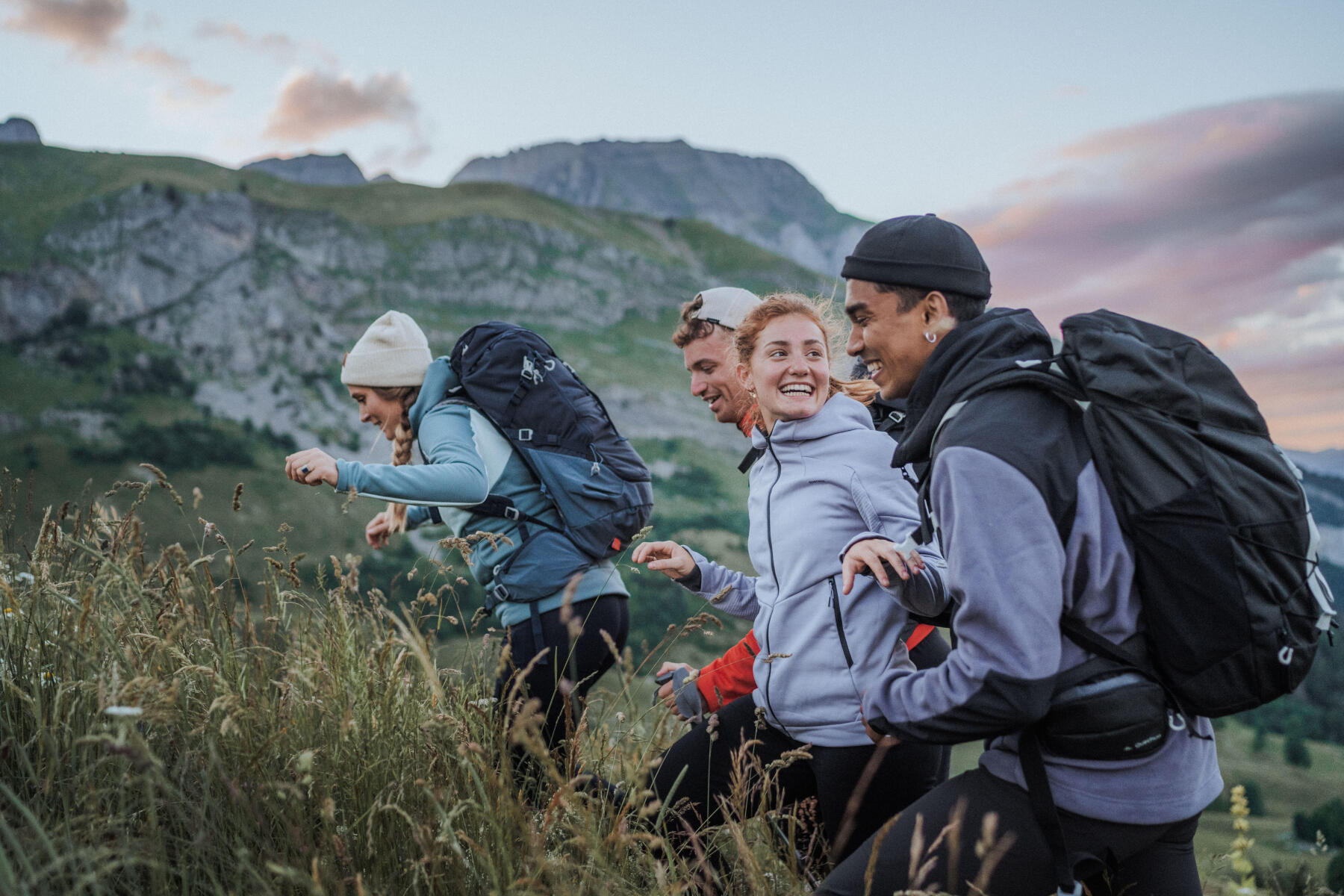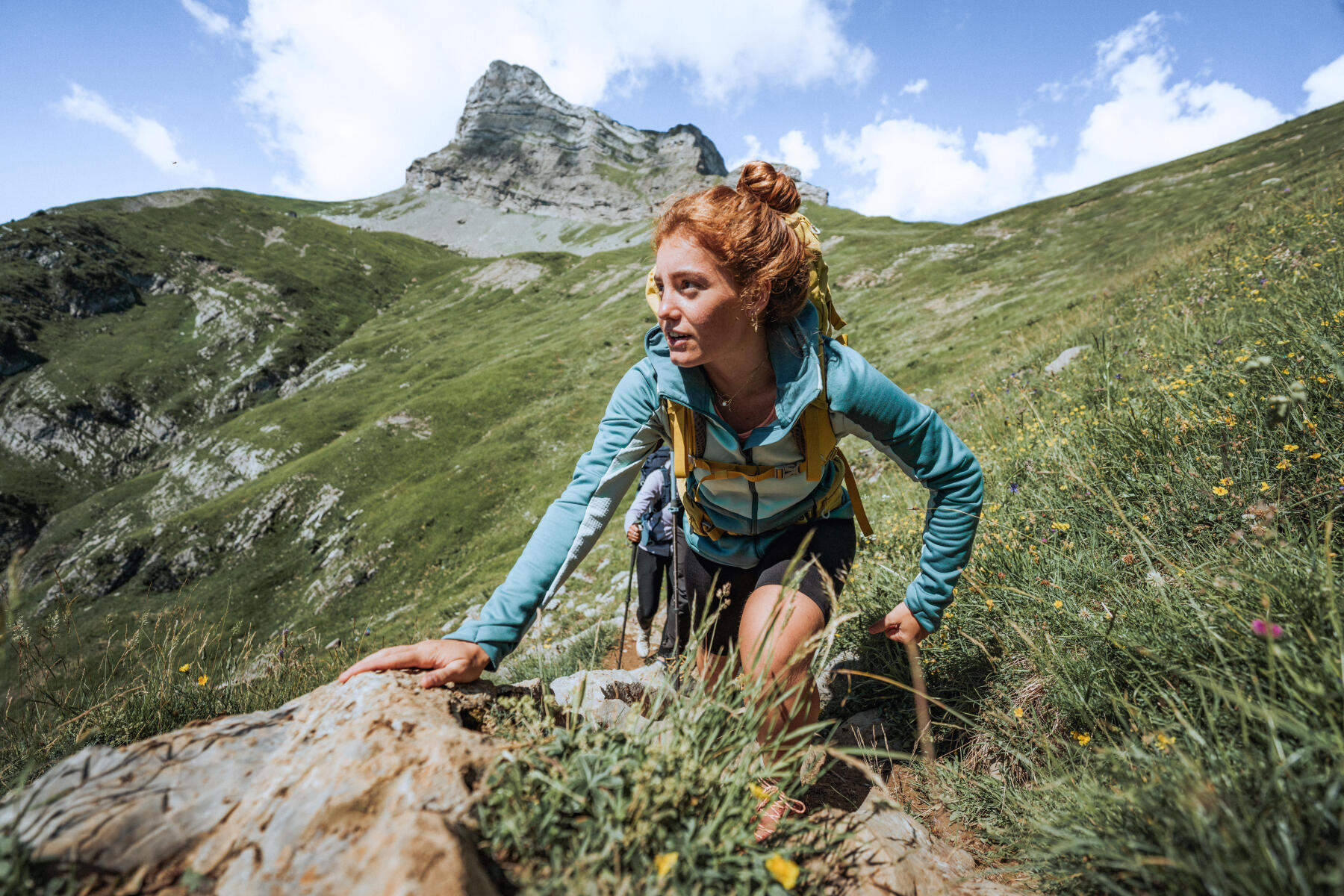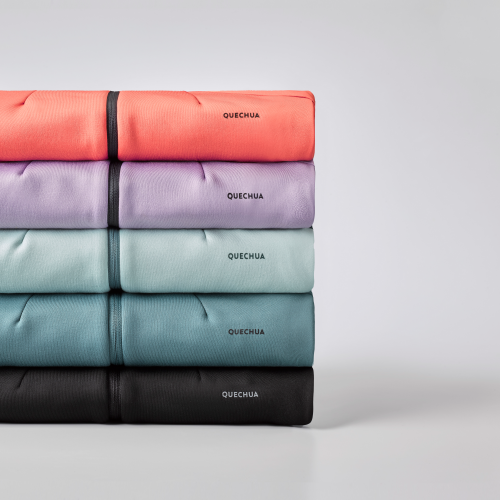Let's have a look back
Thanks to their softness and their warmth, fleeces are one of the essential hiking products.
At Quechua, we have been designing warm, sporty and trendy fleeces for the younger and older generations since 1987.

10 years of responsible commitment!
The one that we always slip into the bottom of our backpack, the one that has evolved over the years and trends, the one that we wear on our most beautiful hikes as well as during our daily lives ...
At Quechua, we have been designing fleeces for years to accompany you and encourage you to spend more time outdoors.

Thanks to their softness and their warmth, fleeces are one of the essential hiking products.
At Quechua, we have been designing warm, sporty and trendy fleeces for the younger and older generations since 1987.
In 2010, we changed our environmental outlook and created our first eco-designed fleece: the Forclaz 50.
Our flagship product at that time saw its main material evolve towards recycled polyester.
A yarn that has the same technical characteristics as a classic yarn (lightness, breathability, quick drying) with a design approach that has more respect for the environment since it comes from recycled plastic bottles, to preserve our playground in a more sustainable way.
Today 90% of our Quechua fleece range is made from recycled fibre, and we fully intend to continue our efforts to limit the impact of our activity on the environment!

Men fleeced

Women fleeced

Junior fleeces

Designing more responsible fleeces does not mean less technical, on the contrary!
Whether they are in recycled or mass-dyed polyester, our yarns have the same technical characteristics as a classic yarn.
The mission of the fleece component is to trap air thanks to the volume created by its texture and this air, by its insulating power, keeps your body warm.
And like all our products, our Quechua fleeces are also tested and re-tested, in laboratories and in the field, to guarantee you warmth, breathability and even more comfort and ease of movement for hiking all year round.
After 10 years of commitment to limit the environmental impact of our fleeces, we are proud to announce that 90% of our range is now eco-designed.
The quest for a more environmentally friendly design is our daily challenge, and our teams are working on new solutions that have even less impact so that 100% of our fleeces will be eco-designed by 2026.






